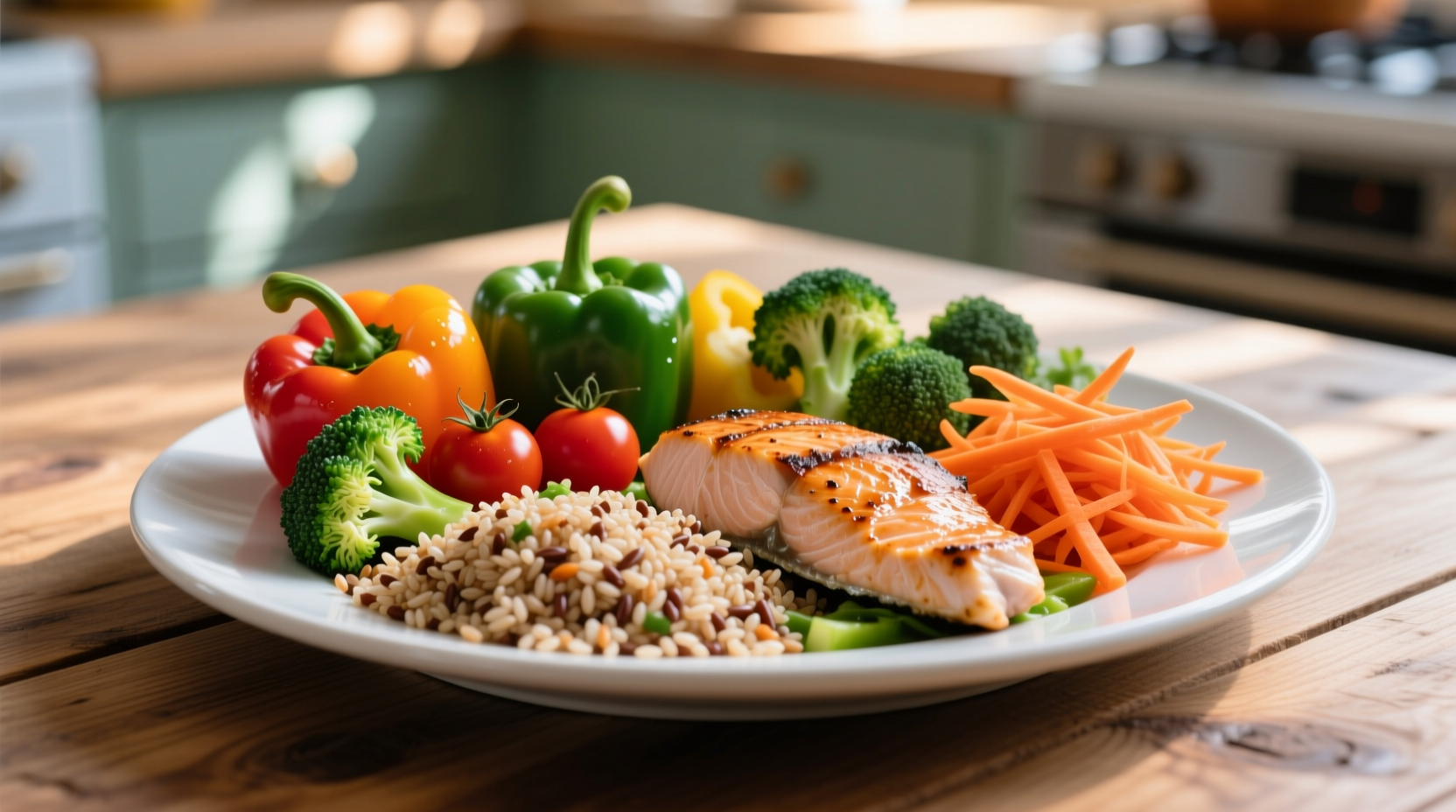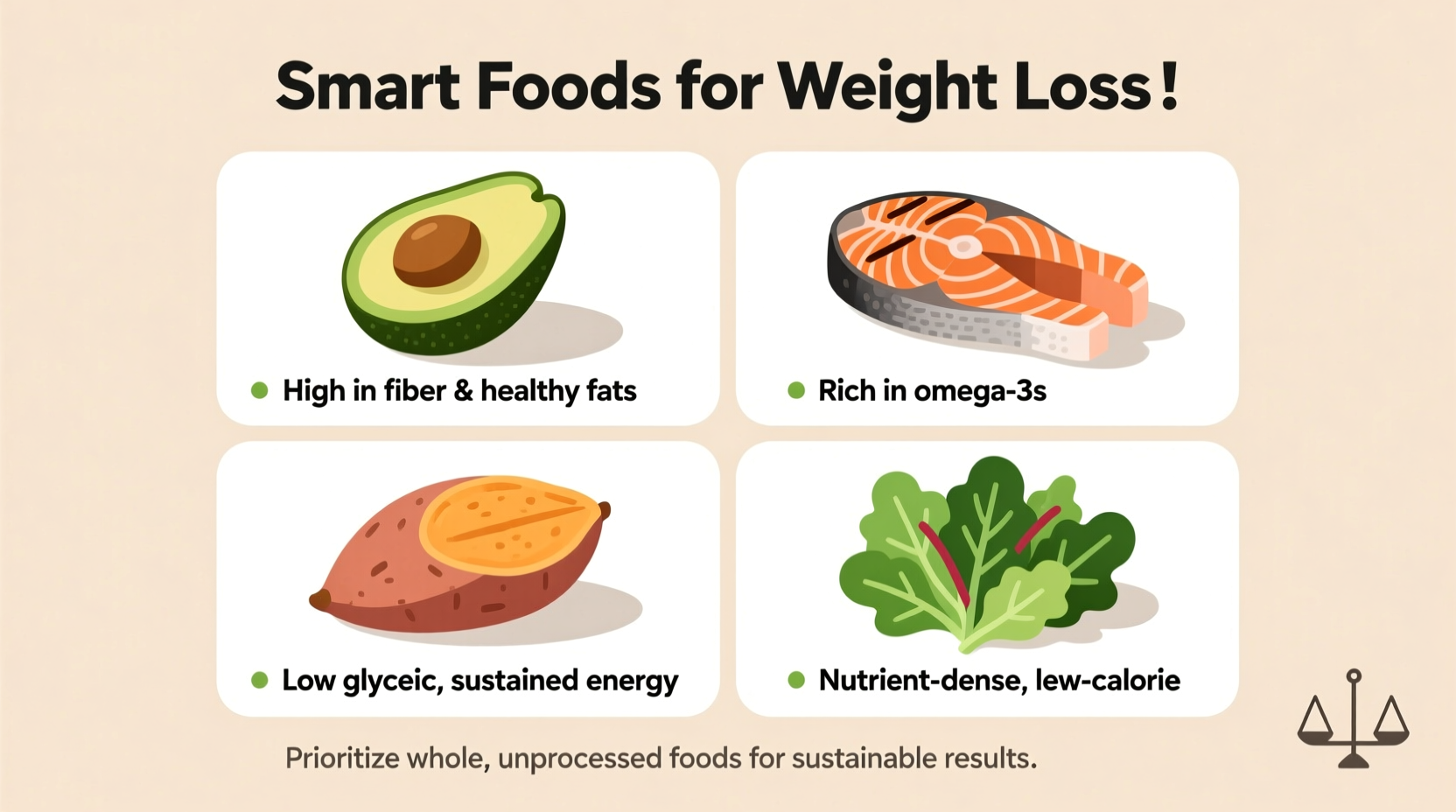Your Practical Guide to Weight-Loss Friendly Foods
When searching for what foods should I eat to lose weight, you need science-backed options that deliver real results without extreme restrictions. After reviewing clinical studies and nutritional research, we've identified specific food categories that support sustainable weight management while keeping you satisfied.
Why Certain Foods Accelerate Weight Loss
Weight loss isn't just about cutting calories—it's about choosing foods that work with your body's natural processes. The most effective weight-loss foods share three critical characteristics: high nutrient density, strong satiety properties, and positive metabolic effects. Research from the National Institutes of Health shows that dietary patterns emphasizing these foods lead to 30-50% greater long-term success compared to restrictive diets.

Top Protein Sources for Satiety and Muscle Preservation
Protein is your weight-loss ally because it increases feelings of fullness and helps maintain muscle mass during calorie reduction. According to a CDC analysis, individuals who consume adequate protein lose 25% more body fat than those with lower protein intake.
- Eggs: One large egg provides 6g protein for just 78 calories. Studies show egg breakfasts reduce calorie intake by 180 calories throughout the day
- Salmon: Rich in omega-3s that reduce inflammation linked to weight gain. A 3-ounce serving delivers 22g protein
- Greek yogurt: Contains double the protein of regular yogurt. Opt for plain varieties to avoid added sugars
- Chicken breast: 26g protein per 3 ounces with minimal fat content
High-Fiber Foods That Keep You Full Longer
Fiber adds bulk to meals without extra calories, slowing digestion and stabilizing blood sugar. The Harvard T.H. Chan School of Public Health recommends 25-38g of fiber daily for optimal weight management.
| Food | Fiber per Serving | Calories | Weight Loss Benefit |
|---|---|---|---|
| Broccoli (1 cup) | 5.1g | 55 | Volume eating with minimal calories |
| Black beans (½ cup) | 7.5g | 114 | Stabilizes blood sugar, reduces cravings |
| Chia seeds (1 oz) | 9.8g | 138 | Absorbs 10x weight in water, increases fullness |
| Apples (medium) | 4.4g | 95 | Natural sweetness satisfies sugar cravings |
Healthy Fats That Support Metabolism
Contrary to outdated advice, certain fats actually enhance weight loss. The American Heart Association confirms that monounsaturated and polyunsaturated fats improve insulin sensitivity and reduce abdominal fat storage.
Avocados: Though calorie-dense, their monounsaturated fats increase fat burning by 2% according to American Journal of Clinical Nutrition research. One-third of a medium avocado provides optimal portion.
Nuts: Almonds and walnuts contain compounds that increase calorie excretion. A study in Obesity journal found that nut consumers had 5% lower body fat percentages despite similar calorie intake.
Context Matters: When These Foods Might Not Work
While these foods generally support weight loss, certain situations require modification:
- Digestive sensitivities: High-fiber foods may cause discomfort for those with IBS—start with smaller portions
- Medical conditions: Kidney disease may require protein restriction—consult your physician
- Calorie needs: Athletes or highly active individuals need more calories—don't restrict below maintenance level
- Food allergies: Always substitute with equally nutrient-dense alternatives
Practical Meal Planning Strategies
Create balanced meals using the plate method: fill half your plate with non-starchy vegetables, one-quarter with lean protein, and one-quarter with whole grains or starchy vegetables. This simple approach naturally controls portions while ensuring nutrient balance.
For healthy foods that help burn fat throughout the day:
- Breakfast: Greek yogurt with berries and chia seeds
- Lunch: Large salad with mixed greens, grilled chicken, avocado, and olive oil dressing
- Dinner: Baked salmon with roasted broccoli and quinoa
- Snacks: Apple slices with almond butter or carrot sticks with hummus
Common Misconceptions About Weight Loss Foods
Many people searching for what foods should I eat to lose weight encounter misleading information. Research shows these common beliefs are inaccurate:
- "All calories are equal": 100 calories of broccoli affects metabolism differently than 100 calories of soda
- "Fat-free means weight-loss friendly": Many fat-free products contain added sugars that increase hunger
- "Carbs are the enemy": Whole food carbohydrates from fruits, vegetables, and whole grains support sustainable weight loss
Your Next Steps for Sustainable Weight Management
Start incorporating these nutrient-dense foods for weight management gradually. Focus on adding beneficial foods rather than strict elimination. Track your hunger levels and energy for two weeks while implementing these changes—you'll likely notice reduced cravings and more consistent energy. Remember that consistency with healthy eating patterns matters far more than perfection.











 浙公网安备
33010002000092号
浙公网安备
33010002000092号 浙B2-20120091-4
浙B2-20120091-4